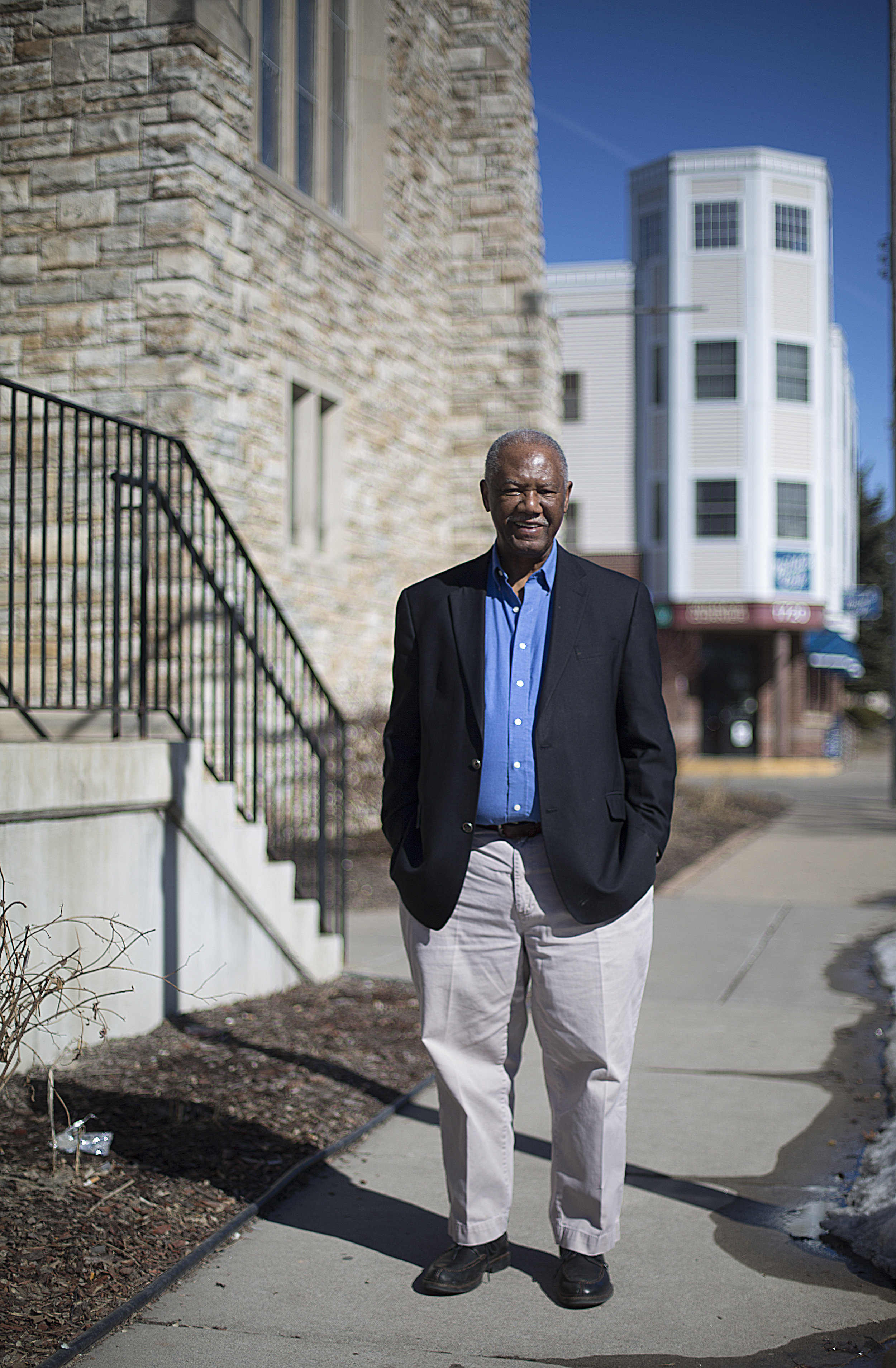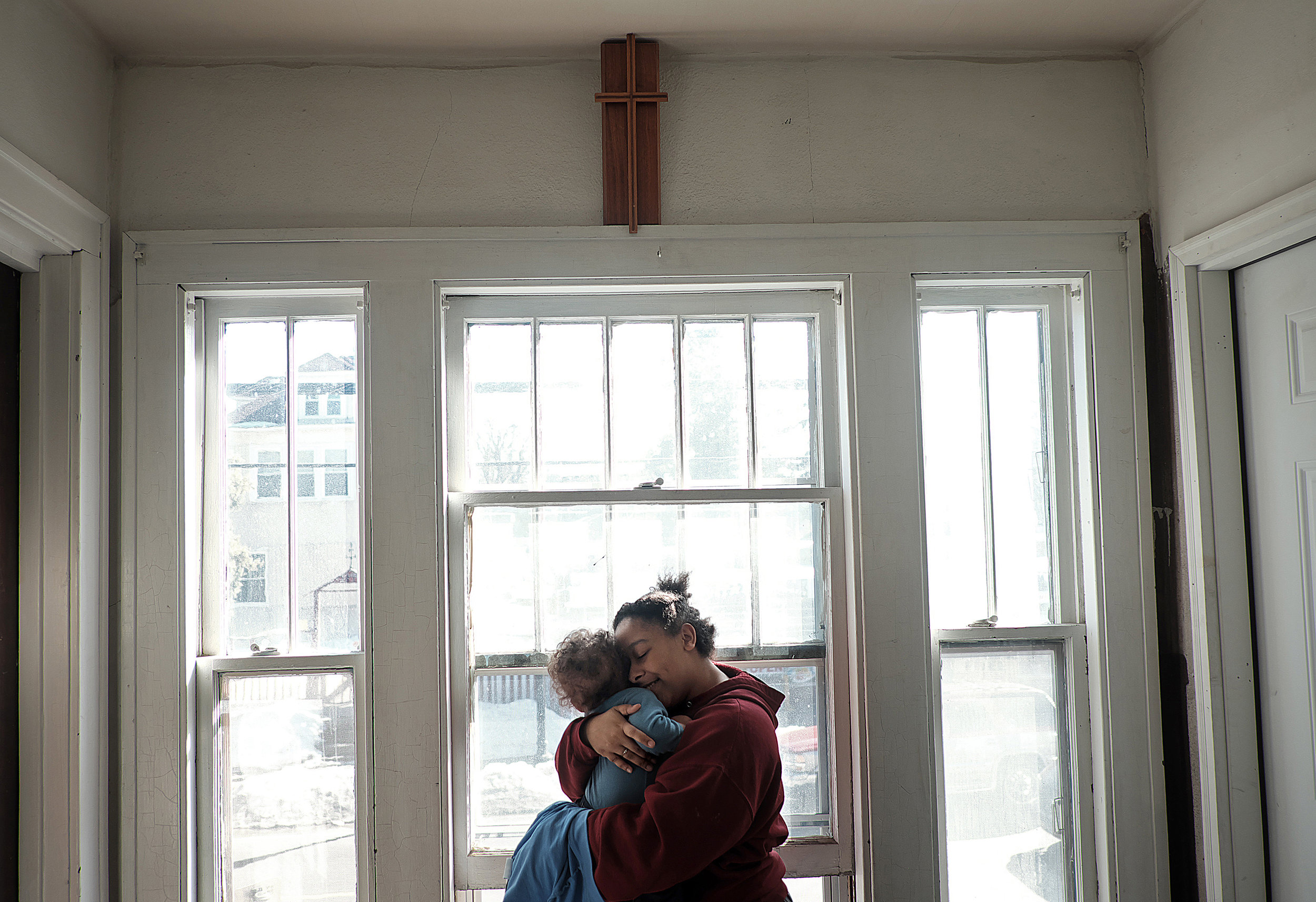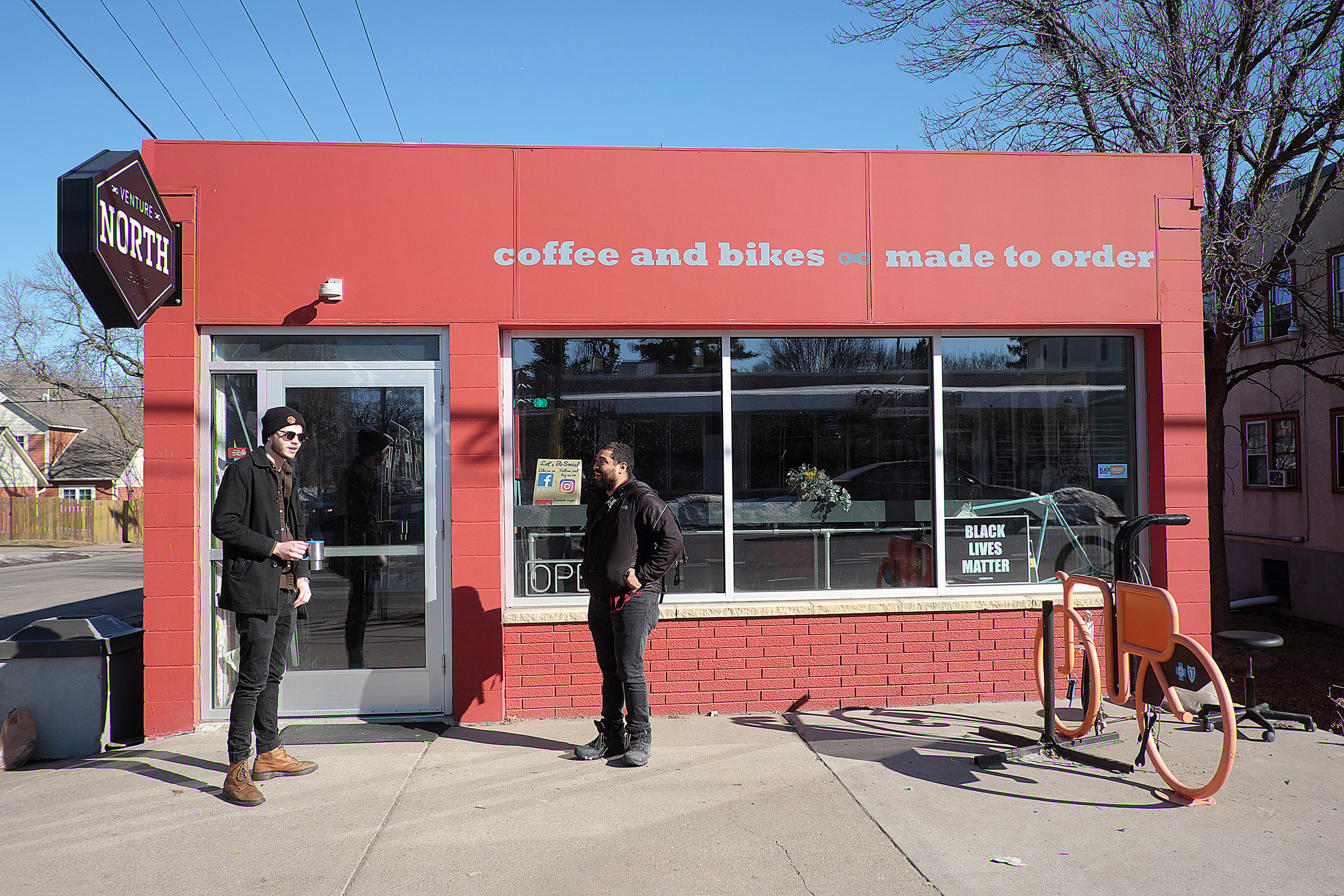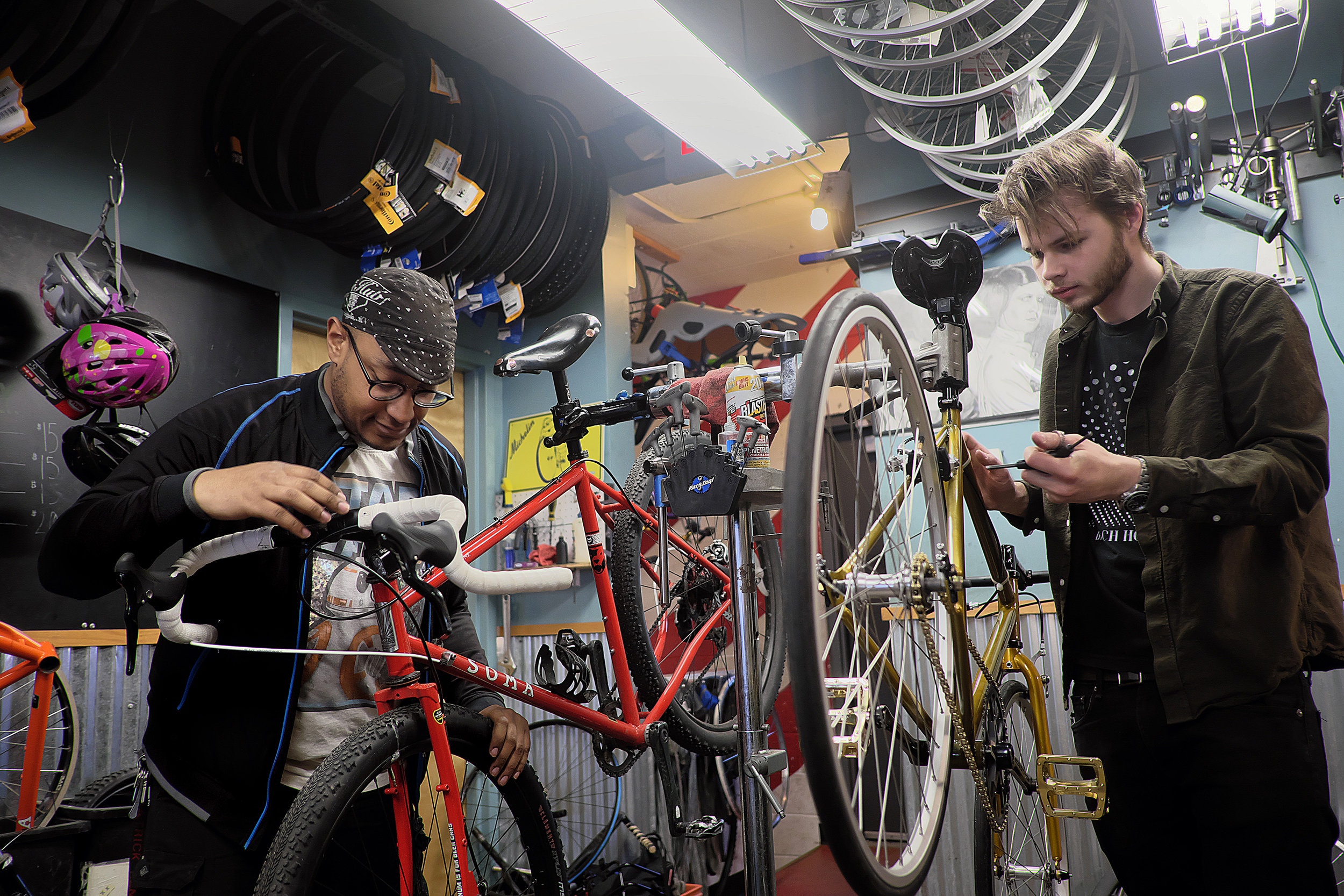Putting their money behind their missions: religious organizations boost the local economy
Local churches are making intentional, innovative investments in the Northside economy. According to local faith leaders, these acts are as much about religion as they are about remaining relevant.






By Cirien Saadeh | Staff Reporter
In just a few months, the rooftop of Shiloh Temple International Ministries (STIM) will be home to a solar garden. The garden, which is being built in partnership with Masjid An Nur, will provide solar energy for both faith communities, as well as over two dozen North Minneapolis homes.
Low income communities often don’t have access to solar energy because excellent credit is typically required to purchase solar panels. “This is a triumphant moment for our community. We are proud that this roof of 630 panels, 204 kilowatts of power, will provide electricity for many in the same community,” said Bishop Howell of STIM at the groundbreaking ceremony for the garden. “God said let there be light and there was light. And God saw the light and it was good. Today we recognize that same light has come to this community from a roof that will provide the right light for energy, power, and opportunity.”
Community leaders celebrate the March groundbreaking of a solar garden at Shiloh Temple. Photo by David Pierini
The solar garden is one of many non-traditional economic initiatives being taken by local religious institutions in efforts to empower the community and remain relevant. They are supporting, strengthening, and, in a couple of cases, creating Northside businesses. They are combating gentrification through land ownership and are operating as landlords, supporting residents hit hardest by the city’s affordable housing crisis. Nearly all are providing some sort of direct service – financial literacy classes, food shelves, and workforce development.
____
How much money is being pumped into North Minneapolis by faith communities is difficult to estimate.
Religious institutions like Sanctuary Covenant Church, the Episcopal Church in Minnesota (which recently established its headquarters on W Broadway Ave.), and Corner Church (which operates Corner Coffee Camden) are building relatively new congregations in the Northside, investing economically, through new buildings and spaces. For example, the Episcopal Church in Minnesota invested heavily in a total reconstruction of its new space on the corner of W Broadway and Emerson Ave. N. Instead of kicking first floor tenant Sammy’s Avenue Eatery out when they bought the building, they did the opposite: they remodeled his space and reduced his rent.
Sanctuary's new campus, a $5 million construction project, was intentionally built on busy W Broadway Ave. Eventually, church leaders envision becoming an economic player on the corridor. They’re already connecting with the West Broadway Business and Area Coalition.
Older congregations are doing the work too.
Gethsemane Lutheran Church, a 125-year-old church, combines direct service with direct action. The congregation provides a food shelf, community meals, daycare, and access to a program called PAVE (Pathways from Volunteerism to Employment) for individuals (including the elderly and formerly incarcerated) to access employment through volunteer job training and resume development. All of its programming is open to community and, according to Pastor Jeff Nehrbass, most of the programming serves non-parishioners.
PAVE recently graduated its first volunteer who took on a job at Cub Foods. Four other individuals are currently going through the program. PAVE was the result of community engagement efforts as the church attempted to figure out what its role in the community should be.
“When I got here, 9.5 years ago, the congregation was asking itself should we close or does God have other plans for God’s neighborhood church? What the congregation decided to do was figure that question out and we went out into the neighborhood to ask the neighborhood a simple question, ‘What would we need to be in order for us to be the neighborhood’s church?’” said Nehrbass. They got an answer – step into community and put their money where their mouth was.
____
Perhaps no religious institution on the Northside is more involved in the local economy than Redeemer Lutheran Church on Glenwood Ave. According to Senior Pastor Kelly Chatman, Redeemer’s involvement in the local economy is “an act of solidarity on holy ground.”
Redeemer has invested a significant chunk of change into Harrison — it owns the entirety of its block from 1830 Glenwood Ave. to 1720 Glenwood Ave, and from Glenwood Ave N to 4th St. The block is home to Venture North Bike, Walk & Coffee shop (a project of the church), historically significant Milda’s restaurant, Health Commons, homes, duplexes, other housing units, vacant lots, garden plots, and the church itself.
“Our mission statement is to be a beacon of hope to the neighborhood,” said Chatman, “How we function within the neighborhood is the same as how we function within the walls of the congregation.” Chatman compares the work occurring in Harrison to the story of “stone soup,” with everyone putting something small into a pot resulting in something magnificent. Chatman calls that magnificence an “an activity of God.”
According to Chatman, the role of faith and religion in economic development is about advocacy and caring for the marginalized and meeting the long-term needs of the community.
Because religious institutions are typically in community longer than the typical non-profit, and are often more sustainable (whether it be financially or socially), they can invest in Northside economic development in a way that individuals and smaller organizations cannot. What is also unique is the number of churches in North Minneapolis investing economically. There is no specific data on how much money comes back into Minneapolis via church-related economic investment, but a sampling of over two dozen churches in other parts of Minneapolis lists lots of direct-service work and limited economic development work. As Minneapolis continues to grow, more money is pumped into communities like North Minneapolis. Because of their connection to community, religious institutions may have the capacity and the opportunity to turn this economic growth into sustainable community wealth.
“It’s about being relevant to our community,” said Chatman. “I believe, and I believe our congregation believes, that the church is a manifestation of the Kingdom of God, so no matter what your faith background, every religious faith is about how you live out that belief in care for God’s creation.”

